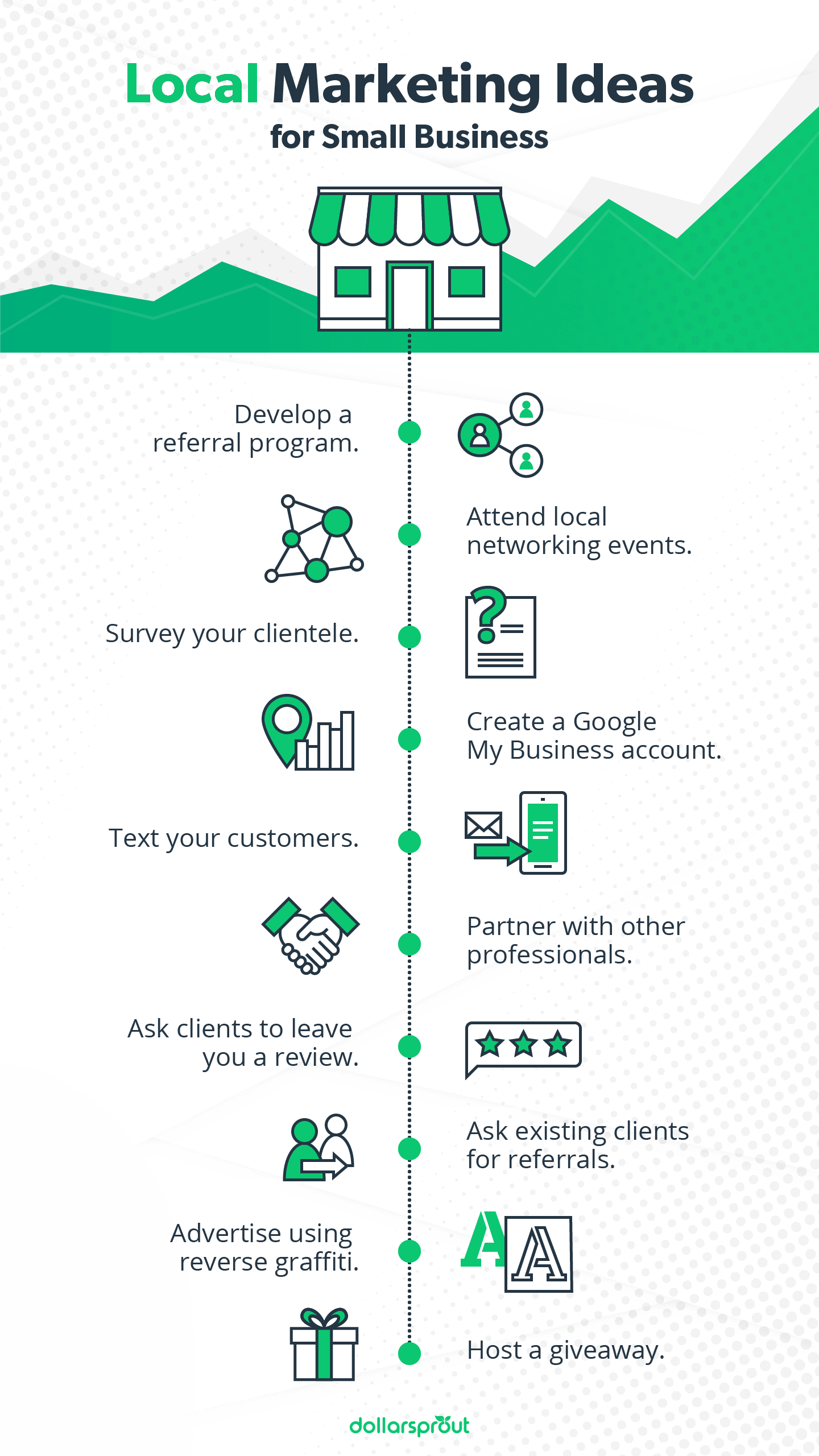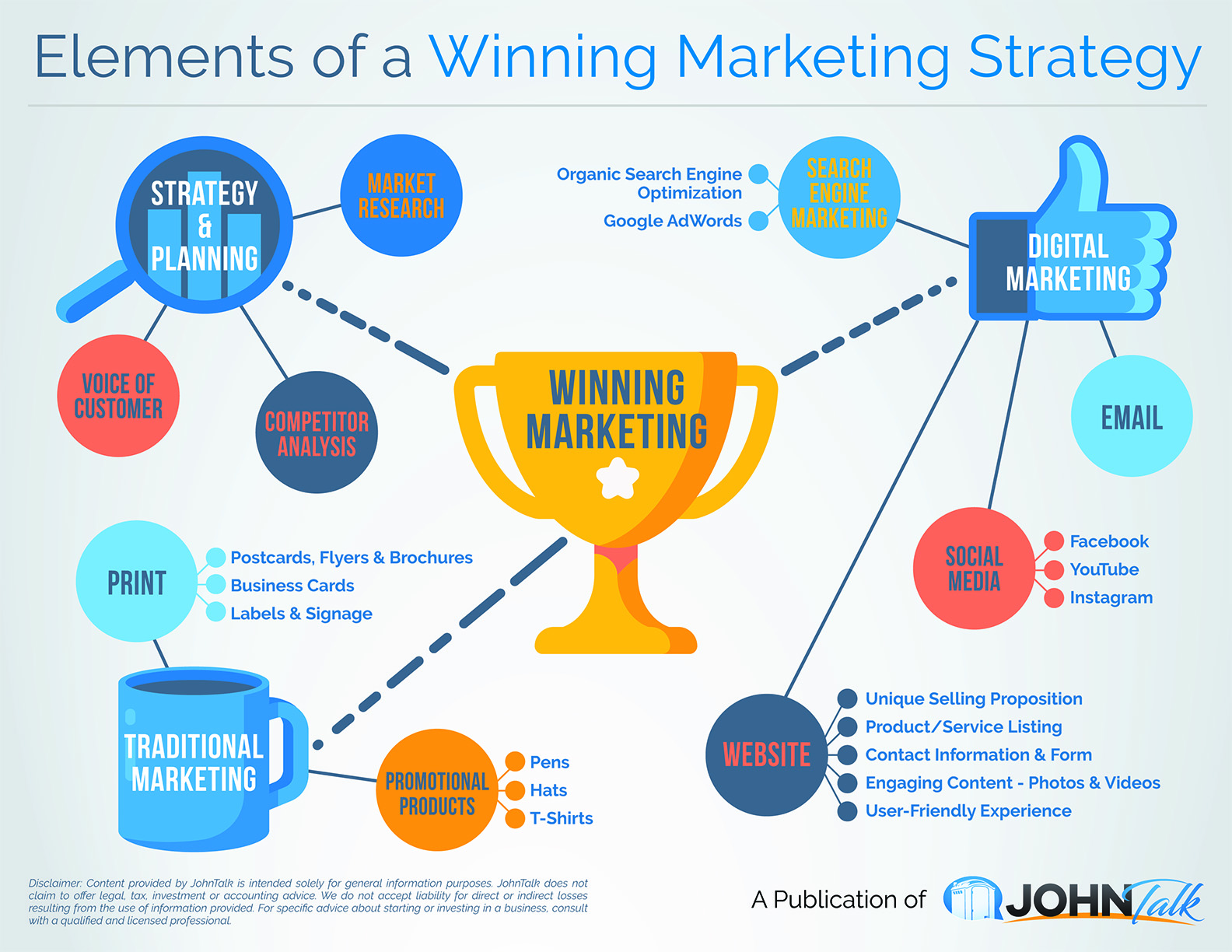Best Marketing Strategies for Small Businesses: A Comprehensive Guide

In the bustling world of business, standing out is essential. As a small business owner, you might feel like a tiny fish in a vast ocean. But with the right marketing strategies, you can make a big splash. Imagine your business as a lighthouse; with effective marketing strategies, you can beam your light further, attracting more customers and outshining the competition. So, let's dive in and explore the best marketing strategies for small businesses.
Understanding Your Target Audience
Before you start planning your marketing strategies, you need to understand your target audience. Who are they? What do they like? What problems do they face? Think of your target audience as your compass, guiding your small business marketing ideas.
You can start by creating buyer personas, detailed representations of your ideal customers. This will help you tailor your marketing efforts to the right people. For instance, if you're a local bakery, your target audience might be foodies who value artisanal products. Your small business promotion should then focus on highlighting the quality and uniqueness of your baked goods.
Building a Strong Online Presence
In today's digital age, having an online presence is not just an option, it's a necessity. Here are some effective marketing strategies to boost your online visibility:
Search Engine Optimization (SEO)
SEO is like the roadmap that leads customers to your doorstep. By optimizing your website with relevant keywords, you can improve your search engine ranking and increase organic traffic. Tools like Google Keyword Planner can help you find the right keywords for your small business advertising.
For example, if you're a florist, you might want to rank for keywords like "best flower delivery service" or "local florist near me". Remember, the goal is not just to rank high, but to rank high for the right keywords that your target audience is searching for.
Content Marketing
Content marketing is like storytelling. It's about sharing valuable information that resonates with your audience. This could be blog posts, videos, infographics, or podcasts. The key is to create content that solves your audience's problems or answers their questions.
Let's say you own a small accounting firm. You could share blog posts about tax tips or create videos explaining complex accounting terms. This not only positions you as an expert in your field but also builds trust with your audience.
Social Media Marketing
Social media is like a bustling marketplace. It's where people gather, share, and discover new things. For small business promotion, social media can be a goldmine. It allows you to reach a wider audience, engage with customers, and build your brand.
The key to successful social media marketing is to be consistent and engaging. Post regularly, respond to comments, and share behind-the-scenes content. Also, choose the right platforms for your business. If you're a B2B company, LinkedIn might be your best bet. If you're a fashion brand, Instagram and Pinterest could be more effective.

Leveraging Email Marketing
Email marketing is like a personal letter from you to your customers. It's a direct line of communication that allows you to nurture relationships and drive sales. Here are some marketing tips for small businesses using email:
- Personalize Your Emails: Use your customers' names and tailor your content to their interests.
- Segment Your List: Divide your email list into smaller groups based on shared characteristics. This allows you to send more targeted emails.
- Offer Value: Share exclusive discounts, helpful content, or early access to new products.
Collaborating with Other Businesses
Collaboration is like a dance; it takes two to tango. By partnering with other businesses, you can expand your reach, gain new customers, and build your reputation. This could be through joint marketing campaigns, referral programs, or co-branded content.
For instance, if you're a small coffee shop, you could partner with a local bookstore for a "Book and Brew" promotion. This not only supports another local business but also attracts a new set of customers who might not have discovered you otherwise.
Measuring Your Marketing Efforts
Marketing without measurement is like navigating without a map. You need to track your efforts to know what's working and what's not. Tools like Google Analytics can help you monitor your website traffic, conversions, and other key metrics.
Regularly reviewing your analytics will give you insights into your customers' behavior and preferences. This will help you refine your small business marketing ideas and make data-driven decisions.

Conclusion: Shine Bright with the Best Marketing Strategies
In the world of small business, marketing is not just about selling; it's about telling your story. It's about connecting with your customers, building your brand, and standing out from the crowd. With the right marketing strategies, you can turn your small business into a beacon that attracts and retains customers.
So, are you ready to shine bright? Remember, understanding your audience, building a strong online presence, leveraging email marketing, collaborating with other businesses, and measuring your efforts are the stepping stones to success. It's time to take the leap and watch your business grow.
FAQs
What are the best marketing strategies for small businesses with a limited budget?
- Focus on low-cost strategies like SEO, content marketing, and social media marketing. These strategies can be highly effective without breaking the bank.
How can I measure the success of my marketing strategies?
- Use tools like Google Analytics to track key metrics such as website traffic, conversion rates, and customer engagement. Regularly reviewing these metrics will help you understand what's working and what's not.
What are some effective small business promotion ideas?
- Collaborate with other local businesses, offer exclusive discounts to new customers, and leverage user-generated content on social media. These strategies can help you reach a wider audience and build your brand.
How important is it to have a website for my small business?
- In today's digital age, having a website is crucial. It serves as your online storefront, providing customers with information about your products or services and allowing them to make purchases or book appointments.
What are some common mistakes to avoid in small business advertising?
- Avoid targeting too broad an audience, neglecting your online presence, and not tracking your marketing efforts. These mistakes can lead to wasted resources and missed opportunities.
0 Response to "Best Marketing Strategies for Small Businesses: A Comprehensive Guide"
Post a Comment